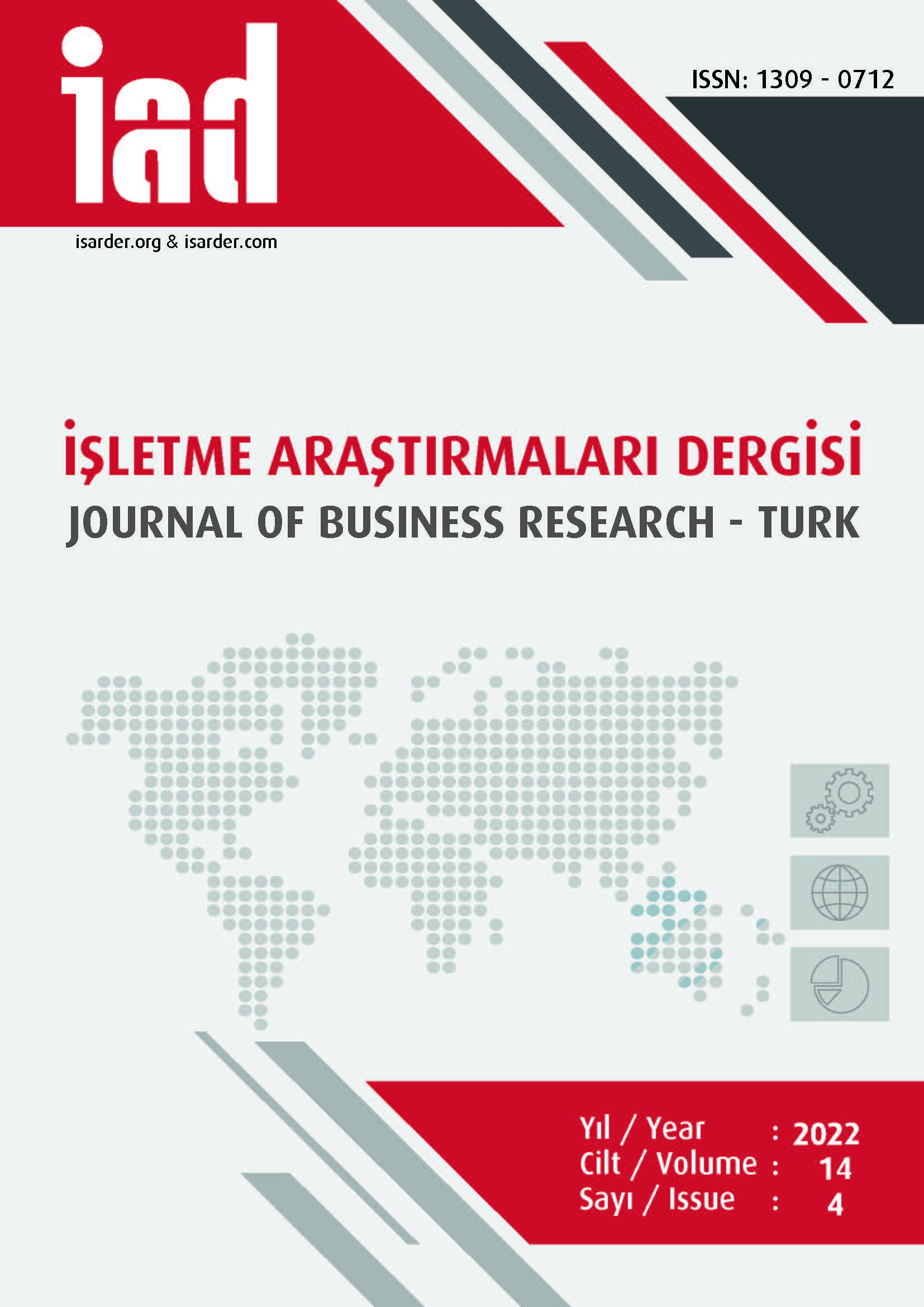The Impact of National Culture on Organizational Dissent: Fieldwork in a Public Institution
DOI:
https://doi.org/10.20491/isarder.2022.1528Keywords:
National culture, Organizational dissent, Organizational behaviorAbstract
Purpose – This research was carried out to determine the national culture perceptions and organizational dissent levels of the members of the organization, and to examine the effect of national culture on organizational dissent preferences. Design/methodology/approach – Relational survey method was used in the research, the field study was carried out in Alanya Municipality. Data from 353 questionnaires were evaluated. Findings – With analysis, it has been concluded that employees are highly masculine, have high power distance, high uncertainity avoidance and high long-time orientation and highly collectivists and also it has been concluded that they consist of individuals who tend to show moderate upward dissent, low level of lateral dissent and moderate level of displaced dissent. With regression analysis, it was determined that masculinity-femininity, collectivism and power distance dimensions had a negative effect on upward dissent preferences. In addition, a positive effect of uncertainty avoidance dimension on upward dissent preferences and masculinity-femininity dimension on displaced dissent preferences was observed. No relationship was found between the long-short-time orientation dimension and the sub-dimensions of organizational dissent. Discussion – The findings were examined together with the theoretical framework, and proposals were presented to future researchers and organization managers.
Downloads
Published
How to Cite
Issue
Section
License

This work is licensed under a Creative Commons Attribution-NoDerivatives 4.0 International License.





